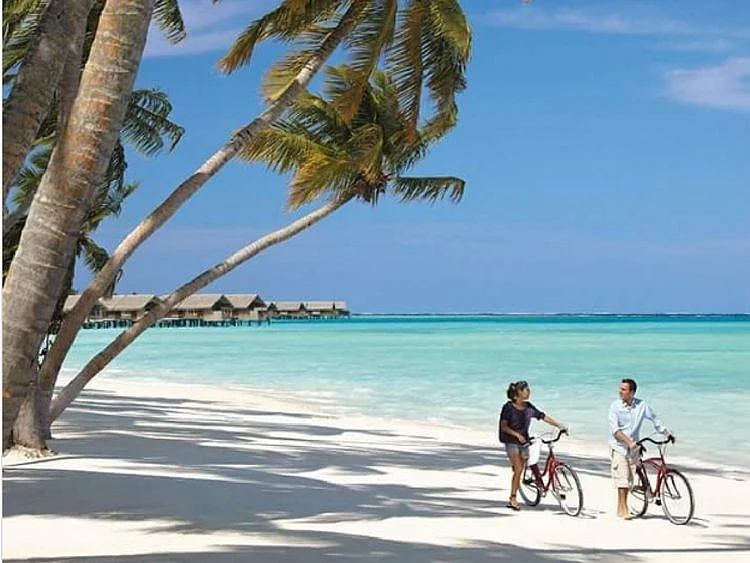Philippines: Digital nomad visa changes, what you need to know
Recent changes to special permits for remote workers in the Asian country

Manila: The Philippines aims to expedite and simplify the issuance of digital nomad visas to stay competitive with about 60 countries that currently offer special permits for remote workers.
Tax incentives may also be offered, in a move being mulled by lawmakers.
Boosting the visa scheme is under consideration to help the country stay in the game of hosting a new crop of remote workers alongside its Asean neighbours who offer various incentives.
What is a digital nomad visa?
A digital nomad visa, also known as “working holiday visa” or “remote work visa”, allows the holder to live in the country for a longer period than regular tourists while working remotely for an office or employer in another country.
The Philippines’s digital nomad visa was initially announced in June 2023.
How long can a digital nomad visa holder stay in the Philippines?
Up to 2 years.
With a digital nomad visa, citizens of other countries can live in the Philippines for one year initially, with the option to renew it for another year, allowing them to stay in the country legally while working for clients or companies located outside its territory.
What are the requirements?
Individuals can obtain a digital nomad visa in the Philippines, after meeting certain requirements:
How to apply for a digital nomad visa for the Philippines?
There are a few steps to follow (as the process is still new, it may be subject to potential changes).
Generally, the applicant will need to:
With approval granted, your digital nomad visa will be stamped onto your passport, allowing you to legally reside and work in the Philippines.
The digital nomad visa is likely to have a processing time of two to three months, according to a travel site.
Digital nomads: By the numbers
Following are some statistics about the demographics and occupations of the worldwide digital nomad community. This data comes from surveys conducted in March 2024:
Tax incentives for digital nomads in the Philippines
Following a July meeting between President Ferdinand R. Marcos Jr and members of Private Sector Advisory Council-Tourism Sector Group (PSAC-TSG), the president directed the drafting of an executive order (EO) for the immediate implementation of nomad visas, without tax incentives.
Marcos supported the "interim solution" and directed the Office of the Executive Secretary to also select a pilot country for the initiative.
The tourism industry welcomed the move. “We need to issue nomad visas quickly to attract long-stay tourists,” said LT Group Vice Chairperson and Chief Operating Officer Lucio Tan III, who is also a member of the council. “Other countries like Thailand, Malaysia, and Indonesia are already benefiting from this approach.”
What is the law on digital nomad visa?
A proposed legislation, House Bill 8165 or the Digital Nomad Act, has been filed in the House of Representatives by Surigao del Norte Rep. Francisco Jose Matugas II.
The bill proposes a 12-month renewable visa for foreign digital nomads, with requirements including proof of sufficient income from outside the Philippines, valid health insurance, and a clean criminal record.
It is up to the Filipino legislators to now pass this law, including proposed incentives.
Incentives under House Bill 8165 or the Digital Nomad Act
Under the House Bill 8165 or the Digital Nomad Act, the following incentives are being considered: • Tax exemption: Digital nomads may be granted a temporary tax exemption on their income derived from sources outside the Philippines. • Visa-free entry: A visa-free entry period for digital nomads may be implemented, allowing them to stay in the Philippines for a specified period without obtaining a visa. • Work permit exemption: Digital nomads may be exempted from obtaining a work permit if their work is primarily performed outside the Philippines. • Benefits: Access to government services: Digital nomads may be granted access to government services, such as healthcare and education, on a par with Filipino citizens. Facilitated business registration: The process of registering a business in the Philippines may be simplified for digital nomads. Networking Opportunities: The government may organise events and initiatives to connect digital nomads with local businesses and entrepreneurs. • Eligibility Criteria: Remote work: Digital nomads must be employed by a foreign company or engaged in remote work activities. Income requirement: Digital nomads may be required to meet a minimum income requirement to qualify for the incentives and benefits. [Specific details may change as the bill progresses through the legislative process]
The Philippines surpassed its 2023 target with 5.45 million international tourist arrivals, exceeding the initial goal of 4.8 million visitors.
Before 2024 is out, the country aims to triple tourists numbers to between 15 million to 16 million, who are expected to bring in about $26 billion to $27 billion in tourism receipts. By comparison, over 28.15 million international tourists visited Thailand in 2023.
Following the Philippine Overseas Gaming Operators (POGO) ban, vacancy rates of residential units in Manila are seen hitting a high of 19 per cent in key areas, with its knock-on effect on price and lease rate growth.
Sign up for the Daily Briefing
Get the latest news and updates straight to your inbox
Network Links
GN StoreDownload our app
© Al Nisr Publishing LLC 2026. All rights reserved.